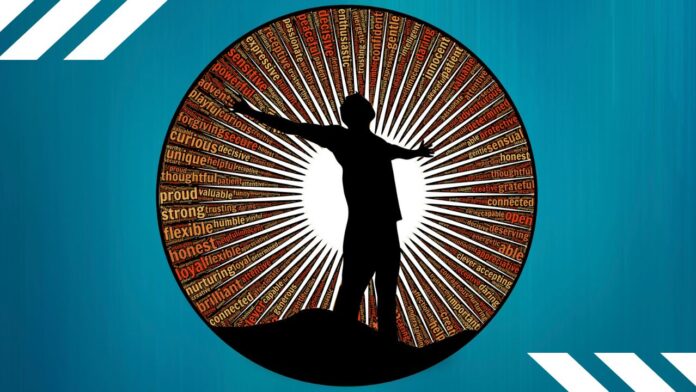By Hu Wo (Cuckoo’s Song)
Personal management means using time tools to plan your day, stay organized, and reduce stress. Old ways of managing stress will still help us in personal growth.
Everyone who comes into the world is given to resolve the one thing. This is nothing but stress. Between positive and negative emotions, stress is a kind of negative emotion as well as physical tension. Hence, there can be found two types of stress: a) emotional stress under which different situations are considered difficult or unable to control, for example, exam nerves before tests, and b) physical stress which refers to a physical response of the body to diverse triggers, for instance, exhaustion after hard work. Here, care should be taken that emotional stress frequently leads to physical stress or vice versa. And there are three stages of stress: 1) stressor, 2) perception, and 3) body reaction. This means that someone misplacing his keys is a stressor; he starting to worry that he will miss his class is perception; and the fact he becomes irritable is a body’s reaction, to name but a few.
Then, stress management must come up in controlling, reducing or even eliminating stress occurring in stressful situations due to emotional and physical changes. Of course, managing stress is all about taking charge of emotions, thoughts, schedules, environments, and the way to deal with problems so as to arrive at a balanced life with time for work, relationships, relaxation, and fun, besides the resilience to hold up under pressure and meet challenges head-on. Stress management usually begins with identifying the true sources of stress in life that are not always apparent but easy to overlook, such as stress-inducing thoughts, feelings and behaviours. Spotting our stress sources, we need to look closely at our habits, attitudes, and excuses. Until we assume responsibility towards ourselves or someone or for something, our stress level will remain outside our control. Meanwhile, we should think of potentially healthy and helpful ways of coping with stress in our lives. Unfortunately enough, many people currently get by on their stress in such unhealthy and unproductive ways that may temporarily reduce stress but cause more adverse effects in the long run as smoking, drinking too much, overeating, undereating, zoning out for hours in front of the TV or computer, withdrawing from friendships, families or activities, using pills or drugs to relax, sleeping too much, procrastinating, filling up every minute of the day to avoid facing problems, and taking out stress on others like lashing angry outbursts, or physical violence.
In this connection, those who are suffering from stress should have healthier ways to withstand stress that will contribute to greater emotional and physical well-being. When we decide on which ways to use for stress management, we can think about the following 4 A’s: avoid, alter, adapt, or accept the stressor.
A 1: Although not all stress can be avoidable, we should avoid unnecessary stress by learning how to say no, avoiding people who stress us out, taking control of our environment, avoiding hot-bottom topics, and paring down our to-do lists. Know our limits and stick to them. Also, limit the amount of time with a person giving stress or end the relationship entirely. If the news makes us anxious, turn the TV off. By the time we get upset over religion or politics, cross them off our conversation lists. When we have had so much in our timetables, distinguish between should’s and must’s.
A 2: If we cannot avoid a stressful situation, we must be able to try altering the situation by expressing our feelings instead of bottling them up, being willing to compromise, being more assertive, and managing our time better. When something or someone is bothering us, communicate our concerns in an open and respectful way. If we ask someone to change their behaviour, we have to be willing to do the same so that we will have a good chance of finding a happy middle ground. And deal with problems head-on, doing our best to anticipate and prevent them. Make sure that we plan in advance and do not overextend ourselves in order to stay calm and focused.
A 3: When we are not able to change the stressor, we ought to change ourselves in order that we can adapt to situations full of stress and regain our control sense by changing our expectations and attitude, through reframing problems, looking at the big picture, adjusting our standards, and focusing on the positive. Try to view stressful situations as an opportunity to pause. Take perspective of the stressful situations or focus our time and energy elsewhere. Stop setting yourself up for failure by demanding perfection and learn to be okay with enough goodness. By the time stress is getting us down, take a moment to reflect on all the things we appreciate in our lives, including our own positive qualities and gifts.
A 4: Sometimes it would be better to accept the things we cannot change like the death of a loved one, and a serious illness. In such cases, do not try to control the uncontrollable because many things in life are beyond our control quite often; look for the upside; share our feelings; and learn to forgive. Rather than stressing out over anything, choose the way of reacting to problems. When facing major challenges, look at them as opportunities for personal growth and learn from mistakes. Talk to a trusted friend or make an appointment with a therapist about our mixed feelings. Let go of anger or resentment and free ourselves from negative energy by forgiving and moving on.
In addition to the above-mentioned 4 A’s strategies, there are other healthy ways to relax, recharge, and adopt a comfortable lifestyle — go for a walk; spend time in nature; call a good friend; sweat out tension with a good workout; write in a stress journal; take a long bath; light scented candles; savour a warm cup of coffee or tea; play with a pet; work in the garden; get a massage; curl up with a good book; listen to music; watch a comedy; set aside relaxation time; connect with others; do something we enjoy every day; keep our sense of humour; exercise regularly; eat a healthy diet; reduce caffeine or sugar; avoid alcohol, cigarettes, or drugs; and get enough sleep.
Personal management is about mapping a life plan that will contain setting short-term or long-term goals and investigating various ways to reach those goals. Education, training, and experience all help make life goals become a reality. This personal management involves using time management tools or strategies to plan, organize, and prioritize daily activities, and also managing stress in life as shown above. The previous ways of stress management for personal development will meet our needs in one way or another for certain, I believe.















